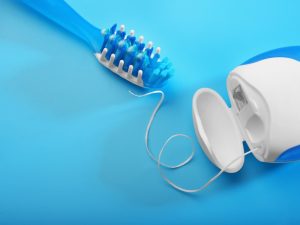Crooked teeth can be a source of self-consciousness for many adults. It’s a common misconception that orthodontic treatment is only for teenagers. The truth is adult teeth can shift over time, leading to misalignment. This guide will explore the causes of crooked teeth in adults and what you can do about them.
What exactly are crooked teeth?
Crooked teeth are a malocclusion condition where the upper and lower teeth don’t fit together correctly.
Common types of crooked teeth include:
- Crowding: When there’s not enough space in your jaw for all your teeth, they may become overcrowded and crooked.
- Gaps: This occurs when there’s too much space between your teeth, causing unsightly gaps in your smile.
- Overbite: An overbite happens when your upper teeth significantly overlap your lower teeth.
- Underbite: In an underbite, your lower teeth protrude over your upper teeth.
- Crossbite: This is when upper teeth fit inside lower teeth instead of overlapping them.
Can your teeth shift as an adult?
Absolutely! Contrary to popular belief, your teeth don’t stop moving once you reach adulthood. Your mouth is a dynamic environment, constantly changing and adapting. Several factors can contribute to teeth shifting, including:
- Gum disease: This oral health condition can break down the bone supporting your teeth, leading to loosening and potential shifting.
- Tooth loss: When a tooth is missing, the surrounding teeth may gradually drift into the space, affecting your bite and smile.
- Normal aging: As you age, the natural changes in your facial tissues can influence the position of your teeth.
- Grinding or clenching: These habits, often unconsciously, exert pressure on your teeth, potentially causing them to move over time.
If you notice changes in your teeth’s alignment, it’s essential to consult with a dentist to understand the underlying cause and discuss potential treatment options.
What causes teeth to become misaligned?
While genetics can play a significant role in tooth alignment, several other factors contribute to crooked teeth in childhood and adulthood.
- Genetics: A family history of crooked teeth can increase your likelihood of experiencing the same issue.
- Jaw size and shape: An imbalance between the size of your jaw and the number of teeth can lead to crowding or spacing.
- Thumb sucking or tongue thrusting: These habits, especially if continued beyond childhood, can impact jaw development and tooth positioning.
- Early loss of baby teeth: Premature loss can disrupt the natural spacing for permanent teeth, leading to misalignment.
- Accidents or injuries: Trauma to the mouth can damage teeth or affect their position, potentially causing crookedness.
- Wisdom teeth: Impacted or partially erupted wisdom teeth can push other teeth out of alignment.
- Long-term habits: Mouth breathing, nail-biting, or pencil chewing can pressure your teeth and affect their position.
Several factors can contribute to crooked teeth, including tooth decay, which may require tooth coloured fillings. Understanding the potential causes of crooked teeth can help you address the issue effectively and seek appropriate treatment.
What are the consequences of crooked teeth?
Beyond the aesthetic concerns, it can significantly affect oral health and well-being. Fixing crooked teeth can address these issues and improve your quality of life.

- Chewing difficulties: Misaligned teeth can hinder your ability to bite and chew food correctly, leading to discomfort and digestive issues.
- Increased risk of cavities and gum disease: It creates hard-to-reach areas where food particles and bacteria can accumulate, increasing the likelihood of tooth decay and gum infections.
- Jaw pain and discomfort: Misalignment can strain the jaw muscles and joints, causing pain, headaches, and difficulty opening and closing your mouth.
- Speech impediments: Severe cases of crooked teeth can affect pronunciation and speech clarity.
- Oral hygiene challenges: Cleaning crooked teeth thoroughly can be difficult, leading to a higher risk of oral health problems.
- Lowered self-esteem: It can impact your confidence and self-image, affecting your social and personal life.
Addressing this issue improves your smile and overall oral health and well-being.
How can you prevent crooked teeth as an adult?
Although your genes play a part in how straight your teeth are, there are preventive measures you can adopt to maintain a healthy smile.
- Prioritise oral hygiene: Consistent and proper brushing and flossing helps prevent gum disease, a primary cause of tooth movement. Regular dental cleanings are also essential for maintaining optimal oral health.
- Protect your teeth: If you have a habit of grinding or clenching your teeth (bruxism), consider wearing a mouthguard to shield them from excessive pressure. This habit can also contribute to jaw pain and tooth wear.
- Regular dental check-ups: Routine dental examinations allow your dentist to identify potential issues early on, such as tooth decay or gum disease, which can contribute to crooked teeth. Early detection and treatment are crucial to preventing more severe problems.
- Consider orthodontic treatment: If you’re concerned about crooked teeth or notice changes in your bite, consult an orthodontist to explore options like Invisalign or braces. These treatments can effectively correct misalignment and improve your smile.
- Avoid harmful habits: Quitting smoking and excessive alcohol consumption is beneficial for overall health, including oral health. These habits can contribute to gum disease and tooth loss, leading to crooked teeth.
- Healthy lifestyle: A balanced diet rich in calcium and vitamin D supports strong teeth and jawbones. Avoid excessive sugary foods and drinks, as they contribute to tooth decay. Incorporate plenty of fruits, vegetables, and whole grains into your diet for overall oral health.

Remember, prevention is vital, but even if your teeth start to shift, effective treatments are available to restore a beautiful and healthy smile.
Conclusion
Crooked teeth aren’t just a cosmetic issue. They can affect your oral health, comfort, and self-confidence. If you’re concerned about your teeth, don’t hesitate to consult with a dental professional.
Straighten your smile with Marsfield Dental Care
Dreaming of a confident smile? Marsfield Dental Care is here to help! We offer a variety of orthodontic treatments tailored to your unique needs. Whether you’re considering traditional braces, discreet Invisalign aligners, or other innovative options, our experienced team will guide you to the perfect solution.
We understand that a beautiful smile can boost your self-esteem and overall well-being. It’s always possible to achieve the smile you deserve. Contact Marsfield Dental Care today for a consultation. Let’s work together to create a smile that shines as bright as you!




